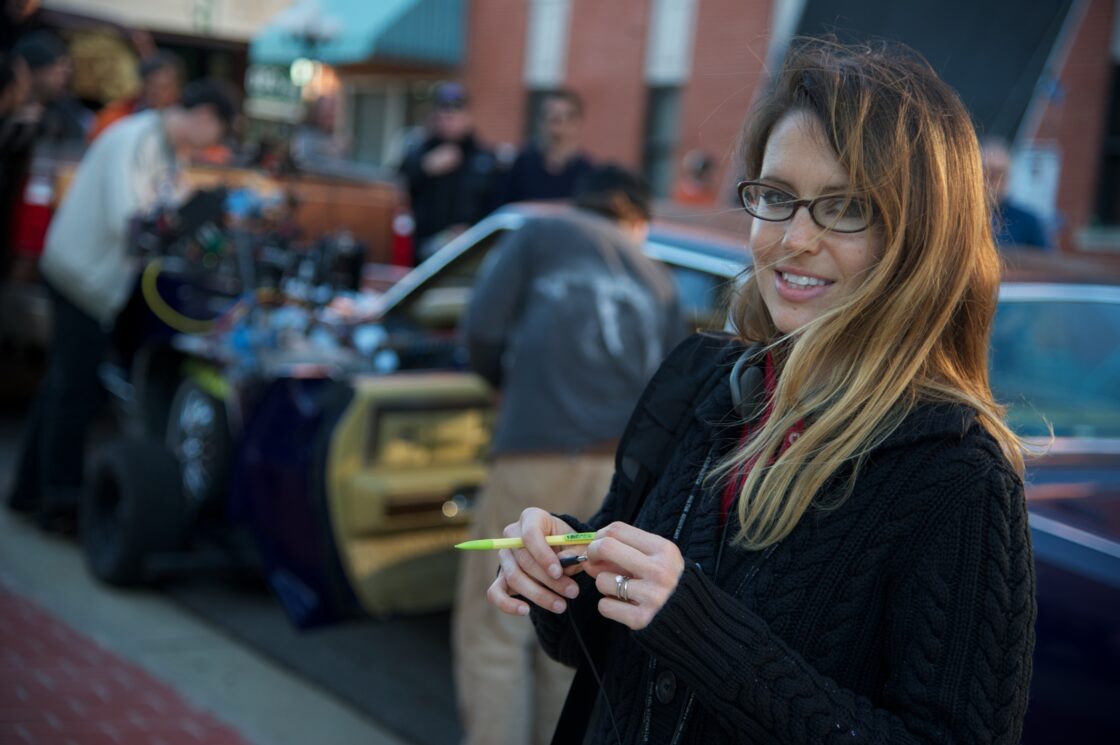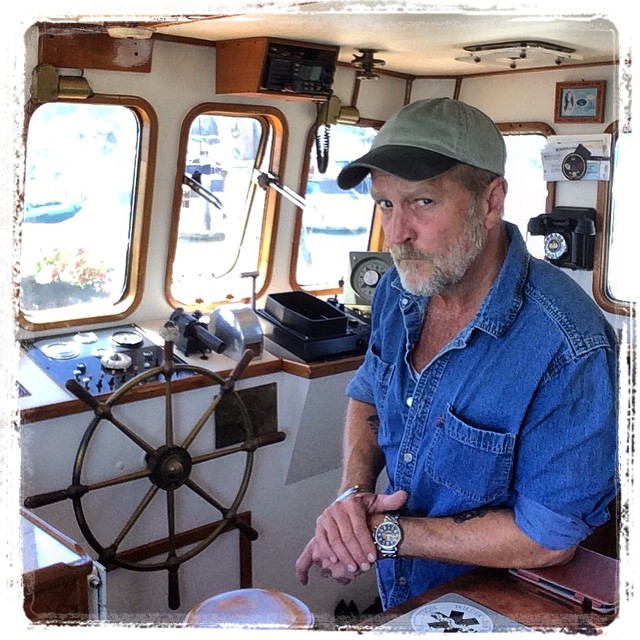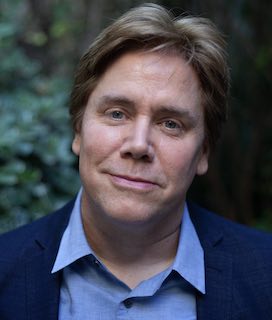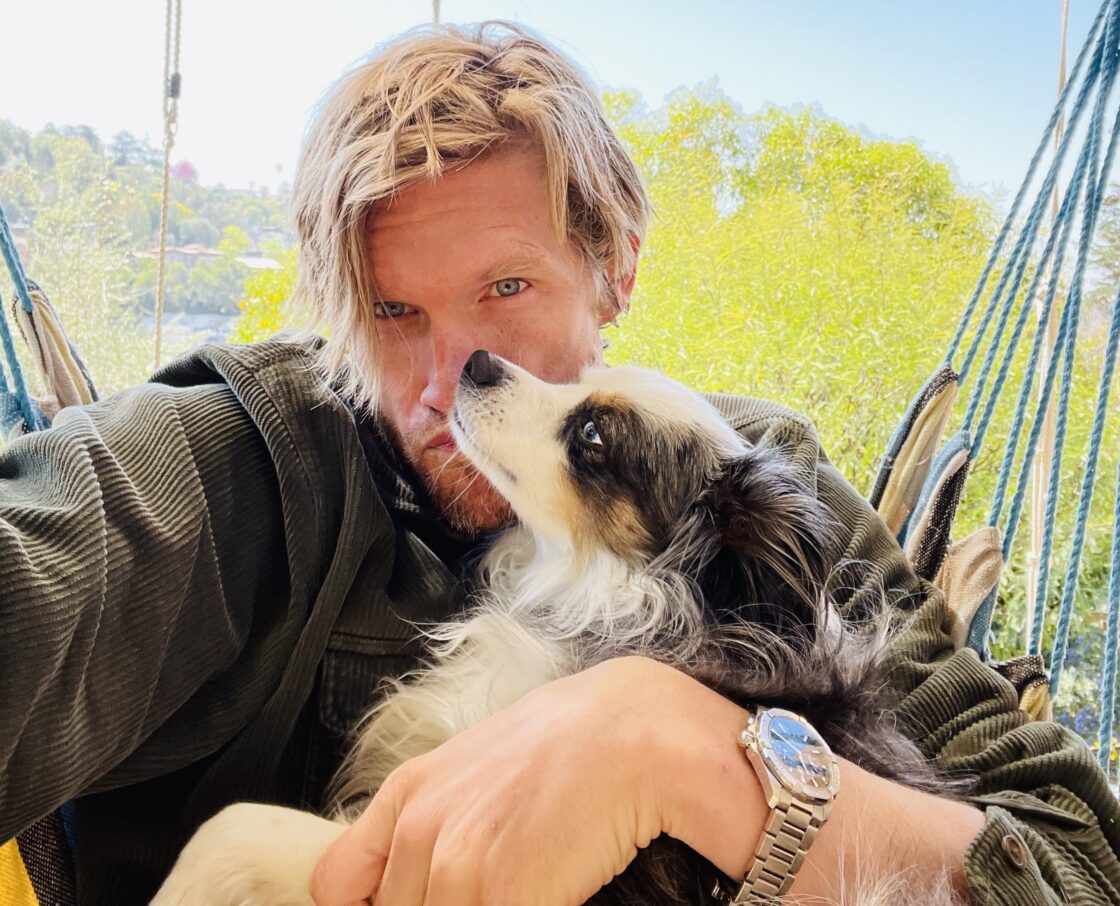|Jennifer.Carriere|
Me and Jennifer met over social media, which if you knew me isn’t my place of comfort. The whole social aspect of this job is not my forte. But I reached out to her because she has one of those jobs that has always mystified me… How one gets it, how it technically works and how one trains to do what she does. She also seems to be doing something others are not, which is training those in her field and giving the job (in her opinion) a much needed make-over. Jennifer was incredibly gracious in sharing… To demystifying the job for me.
If you google “Script Supervisor” you’ll get (via wikipedia):
“The script supervisor is the editor’s and writer’s representative on set, as well as being the right hand aide to the director and the director of photography. It is the script supervisor’s job to make sure that the film can be cut together after shooting has concluded. In that sense, they back up every department, monitor the script during shooting and make sure that errors in continuity do not occur that would prevent the film from being able to be compiled smoothly in the editing room.”
Seems clear enough, but I wanted Jennifer’s take and to learn more about the nuances of the job.
RS: Tell me who Jennifer Carriere is in a logline?
JC: Former Civil Engineer from small town Louisiana walks away from “predictable” and goes on wild ride to become high-volume TV Script Supervisor & Producer.
RS: So many don’t understand the job of a Script Supervisor. How do you explain it to a layperson?
JC: The term “Script Supervisor” is old-timey and outdated! (And that’s probably one of the reasons why no one knows what the hell it actually is.) The Script Supervisor is a mini-director/mini-producer/screenwriter representative/actor wingman/editor advocate all rolled into one amazing film job.
RS: Who gave you your first break?
JC: I got my first break from a TV Script Supervisor who would go on to become my mentor (I repaid him handsomely by letting him live in my house in New Orleans rent-free for years.)
RS: How does one train for this particular job?
JC: I actually created a program to answer this question – the program fast-tracks (those) straight into the industry as Script Supervisors in record time (16 hours of training with me). I launch them into the work using my unique method for getting them early opportunities. I have an awesome, highly disruptive method for fast tracking Hollywood careers via the impactful Script Supervisor role.
RS: When you say you’ve got a “highly disruptive method,” what does that mean?
JC: I love this question! We truly don’t have enough qualified Script Supervisors. This is the case in every film market… the saying is, “There either isn’t anybody or there isn’t anybody qualified.” A few years ago, while working back-to-back shows, the pressure was on to crew up constantly for new projects or double up days.
Every time my UPM would tell me to find a Script Supervisor for a week of second unit shooting, or we were cramming another show onto the schedule and I needed someone for several weeks, I’d be in a panic and pulling my hair out. So I asked myself… If I had to pull a friend in and tell them, “I need you to do exactly this on set (only what matters) and get these results and ignore everything else… and I need you to be ready in two days… What would that fast-track and results-driven training look like? I brainstormed it, then immediately put it into practice.
RS: Ok, so when you say to your friend, “I need you to do exactly this on set (only what matters) and get these results, and ignore everything else…” It’s such a mystery! What is the “this” on set and the “only matters” and “these results”? I’m looking for specificity.
JC: “I need you to do exactly this on set (only what matters)” MEANS Make sure we shoot everything correctly, and the director and actors know where we are in the story and matching the correct energy, and we’re telling the full story of the scene with sufficient camera angles and we’re keeping the departments informed to stay ahead of any mismatches and we’re keeping the producer updated on what we’ve got and what we still owe.
“Get these results” MEANS The work cuts together seamlessly and appears to have been shot sequentially, we’re not missing any shots, we have no distracting film flubs, we have no costly reshoots, we’re not wasting time on set, and the piece is neither way too long nor way too short in post.
And “Ignore everything else” MEANS: (Side Bar/RS: Well, ok. She didn’t need to explain that last line — it was pretty self explanatory.)
RS: Are you an introvert or extrovert?
JC: I’m absolutely an introvert. The great thing about being an introvert AND being a Script Supervisor is that we spend a lot of time on set in our own heads. We’re constantly thinking, anticipating problems, solving existing problems, heading off mistakes and miscommunications, and reading Actor and Director energy, as we advise and support them all day long.
We must have enormous courage as Script Supervisors. When we spot an issue (especially when a shoot is two hours behind and everyone is eager to move on and rush through the day) we must not shy away from stopping everything and saying, “No, this is not right. We need to go again for XX reason.” And you’d better believe we need to make our case quickly and succinctly, when all those forces are pushing to move on.
RS: What do you think are the most important traits you need as a Script Supervisor?
“Commitment, Courage, Compassion, Communication skills,
Problem-solving abilities, Positive Attitude,
Empathy, Love of people, Love of Storytelling.”
RS: Is being a Script Supervisor commonly a jumping off place — to move onto other jobs or is this a job some aspire to or are comfortable with doing their whole career?
JC: Becoming a Script Supervisor is the best kept secret in the industry for jumping off into even bigger opportunities. It’s a direct line to the Director’s trusted inner circle which includes: the Director, the Producer, the Screenwriter, the Actors, the Editor, and the Script Supervisor. It’s truly awesome and almost NO ONE thinks to skip the line via the Script Supervisor role!
RS: What department hires you?
JC: The Production department hires us – usually the Unit Production Manager or Production Supervisor. We connect with the Production Coordinator to get updated scripts, crew lists, cast lists, schedules, etc.
RS: Do you have a favorite director? If so, what was it about them that made/ makes them so good?
JC: I’ve worked with so many whom I dearly love, but I have to choose the amazing Nicole Kassell (who won Emmys for both Producing & Directing, Watchmen, and one of the series I worked on with her). What I loved about her: 1) She’s a savage – easily the smartest person in any room she’s in, but she’s super quiet/humble about it. 2) She’s hilarious, kind, warm, strong, honest, direct, and tons of fun. 3) She’s unbelievably prepared, committed to, and meticulous about everything she does as a filmmaker. I’ve never seen another Director match her focus and consistency to the tedious, but absolutely necessary, slog of tiny details involved in directing a series day-to-day.
RS: Favorite card game and why?
JC: Gin Rummy. Mainly because that’s my huge Louisiana family’s go-to card game when we’re passing the hours while visiting or vacationing. It’s low-key strategic but not hard, there’s not a lot of fuss, and I can play it with any family member from my nine year old nephew to my 75 year old aunt. We can casually play while shooting the breeze at the dinner table. It brings us together.
(Our favorite board game is “Loaded Questions.” I know you didn’t ask, but Rebecca, if you want to make your family members laugh ’til they cry, I encourage you to check it out.
RS: From your perspective, what are some common misfires made on set?
JC: Bad attitudes on set are the worst. Yes, making movies and tv can be exhausting, but complaining about it and bringing everyone down is the worst thing anyone can do. (For this reason, I’m super selective about the companies I work for now. I’ve learned from experience to return to those studios and production companies that value a positive and uplifting vibe on set.) Other misfires: poor communication, poor preparation, poor attention to detail, and egos. As filmmakers we have to practice complete commitment to excellence in our individual jobs, and have empathy and understanding towards others on set, all day long, every day. This is the way to create a happy, effective, and productive culture on set.
RS: Are you a competitive person? If so, what are you most competitive about?
JC: I’m competitive with myself. If I have one overly competitive quality, it’s not giving myself enough grace and kindness. I’m ruthless with myself if I make a mistake. I struggle with the “perfectionism” thing and am working on it! As far as competition with others, I don’t feel that as much as I did say, in my twenties. All the success I’ve had on set over the years has given me a healthy sense of security.
RS: What is the most important aspect of your job?
JC: Foresight. As the Script Supervisor I am seeing the final cut in my mind as we shoot it daily in micro bits, totally out of order and out of context. I am responsible for the final product all cutting together with no mistakes. (And NO reshoots!)
RS: Do you have a mantra?
“Yes, thank you, forward”.
My backup mantra is “I do hard things.”
RS: What’s an App you have on your phone that you can’t live without? What’s one you have that might surprise people about you?
JC: Apple Maps for sure! I can’t drive myself out of a paper bag. I’m disoriented when driving everywhere, including in the tiny city where I grew up. This is a genetic thing. I am a carbon copy of my dad, and he has this problem too – complete lack of navigational skills (though he’s a brilliant eyeball surgeon). Runner up favorite App: I can’t live without my Apple Books App.
As a Script Supervisor, people may be surprised to know that I have the Tony Robbins, “Time Management” App on my phone. I say to all my trainees, Script Supervisors must have strong organizational skills in their work, but that doesn’t always translate to their private lives. Personally, I’m a “dreamer” type who barely knows what month it is. Yet on set, people ask me all the time if I have a photographic memory. I always tell them, “It’s just my watertight system, not me!”
RS: If you could shadow one writer, one director, and one actor on a show or film, who would they be and why?
JC: I’d shadow writer Guy Ritchie, because both Snatch and The Gentleman made such an impression on me, that I think in Snatch-isms and Gentleman-isms. (Like my own inside jokes.) Those films are dark, exciting, inventive, and hilarious, and I just want to know how those scripts came to be. Director-wise, I’d go back in time and shadow Billy Wilder, because Some Like It Hot and The Apartment have brought me more laughter than probably my next ten favorite comedies combined. Actor-wise, I’d shadow Rain Wilson, because, how on earth does an actor create a character like Dwight Schrute???
RS: What is the best part of your job, the hardest, and the biggest misconception?
JC: The best part is sharing a brain with the Director and working very closely with the Actors throughout the day. (Most of my best friends these days are TV actors).
The hardest part of my job is having to tease out cooperation on continuity details (with a combination of psychology and charm) from unwilling departments who’d rather not be bothered with close attention to detail, and doing the work of getting up between takes to reset continuity details for the sake of the cut.
The biggest misconception is that we have to have a good memory to be a Script Supervisor – this is absolutely false. I have the world’s worst memory and the world’s best system for tracking thousands of continuity details and having them at my fingertips at all times.
RS: Do you have a go-to book you rely on about the industry? If so, why is it important to you?
JC: I’m very fond of my old, worn out copy of Pat Miller’s “Script Supervising & Film Continuity.” Though I’ve developed my own method over the years, that book is important to me because it was instrumental in my making one of the best decisions of my life. It’s so meaningful to me, I should probably frame the cover!
RS: What’s something that scares you?
JC: Negative news headlines.
RS: Of the mistakes you’ve made on set, was there one you didn’t have to learn twice?
JC:I learned not to rely on the other departments (who are understandably stretched thin with lots of day players stepping in with no knowledge of our show or continuity day-to-day) to get all the matching right. No one cares about matching details more than me, because I’m the person who’d be embarrassed (and I’d hold myself responsible) if we shot something wrong or needed a reshoot.
RS: If you could go back in time and be on one particular set, which one would it be and why?
JC: The answer may surprise you! I would choose a teeny tiny feature you may never have heard of… Ariel Vromen’s, The Iceman starring Michael Shannon and Chris Evans. It was a perfect movie-making experience. I credit the Director and Producers for creating a magical, happy, fun and respectful vibe on set. I was working on location with HUGE and equally delightful stars, and a killer production team and crew as well.
I was housing with an amazing, old-school still photographer from L.A., and we got ourselves into so much trouble every weekend. It felt like summer camp for grownups. Every day on set, and every night and weekend outside of work – it was all just sooo fun. So I’d have to say, when it comes to making movies and TV, the people you work with make ALL the difference!
RS: What movie could you watch over and over again on a rainy day?
JC:Some Like It Hot.
RS: Do you have a favorite place you like to visit?
JC: Martha’s Vineyard.
RS: Any pet peeves?
JC: Dishonesty.
RS: How do you de-stress?
JC: Jogging, reading, watching Fawlty Towers reruns.
RS: Proudest career moment thus far?
JC: When Director Michael Uppendahl told me I’m not a Script Supervisor, I’m an Executive Producer posing as a Script Supervisor.
RS: If you were forced to trade places with a crew member on set, whose job scares you the most and which one would you love to try?
JC: Props scares me. All the time they’re asked to create props that aren’t even in the script, on the fly! Create PROPS with no warning?! It’s crazy!
I’d love to try focus pulling. Focus pullers have to be present on another level – truly dialed into the scene and reacting with their body and their tools in the moment. It’s a remarkable thing they’re doing – they deserve so much credit for their work.
RS: At any point was there advice you received that you thought was questionable at the time, but turned out to actually be helpful?
JC: I had my choice of (either) moving to L.A. for a series produced by a huge Showrunner who I adored (from a previous experience with her) or (work on) a show in New England that would extend into the dead of the bitter New England winter, with a team of completely new-to-me producers.
My mentor encouraged me to take the New England show and pass on moving to L.A. This turned out to be one of the best moves of my career. The relationships I created on the NE show (that turned into MUCH more work) and the love I discovered for that part of the country (including many amazing Cape Cod adventures every weekend) I wouldn’t trade for anything.
RS: What’s simply the worst advice you’ve ever received?
JC: The worst advice I ever received was to work from video village when it was far away from set and the Director. I must be a foot away from the Director sharing a brain with them, at all times. The advice to stay in video village (unless the Director is next to you there) is preposterous and a literal job killer for Script Supervisors.
RS: Have you ever created a vision board for yourself?
JC: This is a great question, and will be the thing that prompts me to create a vision board! Thank you for this question! I have printed out inspiriting quotes and images and hung them around my office, but I’ve never created a vision board. That changes now.
RS: Do you have a favorite tree?
JC: The oak tree, obviously!! I am from south Louisiana and have homes in Louisiana, Mississippi, and Georgia. There’s nothing in nature more beautiful to me than mossy oak trees.
RS: What do you wish someone would have taught you (early on) about the job?
JC: That it’s a direct path to Producing, Directing and Screenwriting. I had to learn that on my own. I’m trying to shout this from the treetops so that others don’t overlook this amazing opportunity to bypass gatekeepers, get their own creative work seen by powerful industry people, and be a creative and authoritative force on set.
RS: When people say, “pick and choose your battles” — what does that look like in your job? What’s a battle you would choose to pick and not to pick?
JC: This comes up rarely, since 99% of the time departments are totally on board to collaborate on matching, but a battle I would pick is with any department choosing not to cooperate when it comes to matching. I owe it to the project, the Director, the Actors, the Producer, the Screenwriter and on and on, to ensure that we maintain continuity while shooting, so that there are no distractions pulling viewers out of the story in the final cut. Sometimes (rarely) it’s a battle I have to have.
A battle I would NEVER pick (I’d just laugh at it instead) is an ego clash. I’m completely secure in my role on set and am unmoved by bravado and shows of ego.
RS: What is a question you wish I would have asked you? What’s one you’re glad I didn’t?
JC:I wish you would have asked how quickly I get my Script Supervisor Trainees working on set and getting promotions to Producer / Director / Screenwriter! I’m struggling to find a question I wish you wouldn’t have asked!! I’ll have to get back to you on that 🙂
There you have it. Here’s to the joyful Jennifer Carriere. I’m always thrilled to come across people who love what they do and are finding ways to help those trying to find their way in.
(And because nothing brings me more joy than laughing with friends and family, I’m now off to order Jennifer’s recommended game, “Loaded Questions” to have ready when the holidays descend upon us – which will be here before we know it, people!)
For more about Jennifer and her Script Supervisor program, see below.
For more q&a’s go to: www.rebecca-stay.com
Bio:
Jennifer Carriere has made hundreds of episodes of network television and dozens of films as a Script Supervisor and Producer. Becoming an excellent Script Supervisor led her directly to becoming a high-volume TV Producer. A former engineer with a love of systems and solving problems, Jennifer created a highly disruptive and efficient method for breaking aspiring filmmakers into Hollywood in record-setting time, via the powerful and overlooked Script Supervisor role – a position for which the film job market is fiery hot.
Website & Socials
Website: ScriptSupervisorCEO.com
IG: https://www.instagram.com/scriptsupervisorceo/
Facebook: https://www.facebook.com/scriptsupervisorceo





